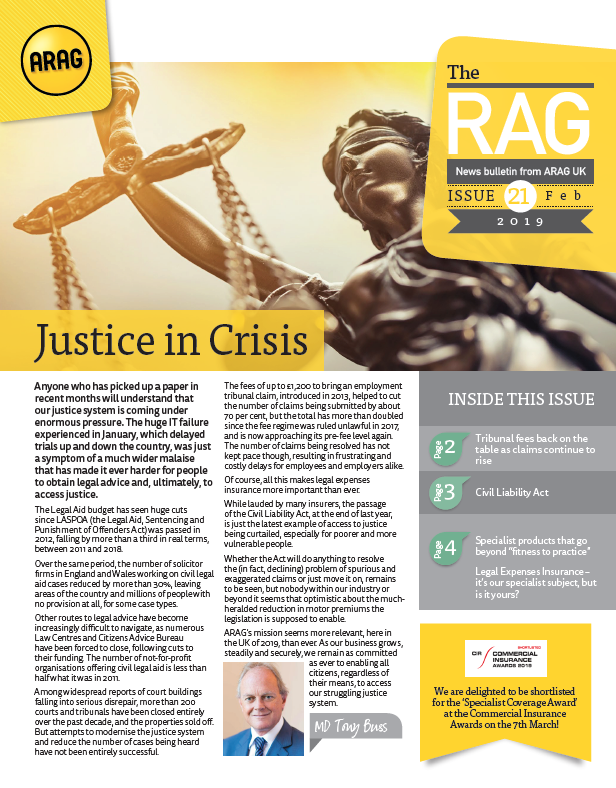
Tribunal fees back on the table as employment claims continue to climb
Published on 26/02/2019
It has been more than 18 months since the employment tribunal fee regime, introduced back in 2013, was ruled unlawful by the Supreme Court. While claims numbers have more than doubled in the absence of fees, they are still not quite as high as they were before fees were introduced.
There are many reasons to suspect that the reintroduction of some sort of fee to bring an employment tribunal claim is unlikely to happen in the foreseeable future. Quite aside from the humiliating climb down the government had to endure when its previous fee regime was found to be unlawful in 2017, there is also the current scarcity of both parliamentary time and political capital to consider.
In November, however, Permanent Secretary to the MoJ Richard Heaton told the House of Commons Justice Committee that a new system of fees was being worked on, while insisting that there were ‘no immediate plans’ to introduce fees.
The possible reintroduction of fees was hinted at again in December, when the Department for Business, Enterprise and Industrial Strategy published its Good Work Plan policy paper.
The statement includes some significant changes to employment law that the government intends to implement in response to consultations conducted last year following the 2017 publication of the independent Taylor Review of Modern Working Practices.
Among the reforms that employers need to be aware of are the right for all workers (rather than just employees) to receive a written statement of particulars on the first day of their work; increased penalties of up to £20,000 for aggravated breaches of employment law; and a ban on employers taking deductions from staff tips.
Breaks of up to four weeks will no longer interrupt continuity of employment for purposes such as bringing an employment tribunal claim; the reference period for calculating holiday pay will increase from 12 to 52 weeks; and the so-called Swedish Derogation, which allows employers to pay agency workers less in certain circumstances, will be abolished.
All of these changes and more should be introduced in either April this year or April 2020 with draft legislation already published for some of the proposals. The government has also committed to clarifying the test for employment status, which has been the subject of much debate and litigation in recent years, but this may prove a trickier task.
While the various measures in the Good Work Plan give employers plenty of new regulation to get their heads around over the coming year and should pass into law without any hitch, the possibility of employment tribunal fees being reintroduced seems like a somewhat more distant and uncertain prospect.
Disclaimer - all information in this article was correct at time of publishing.
Latest from ARAG




